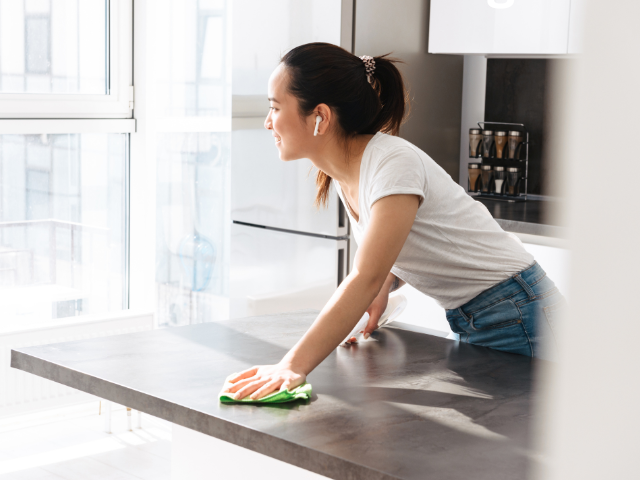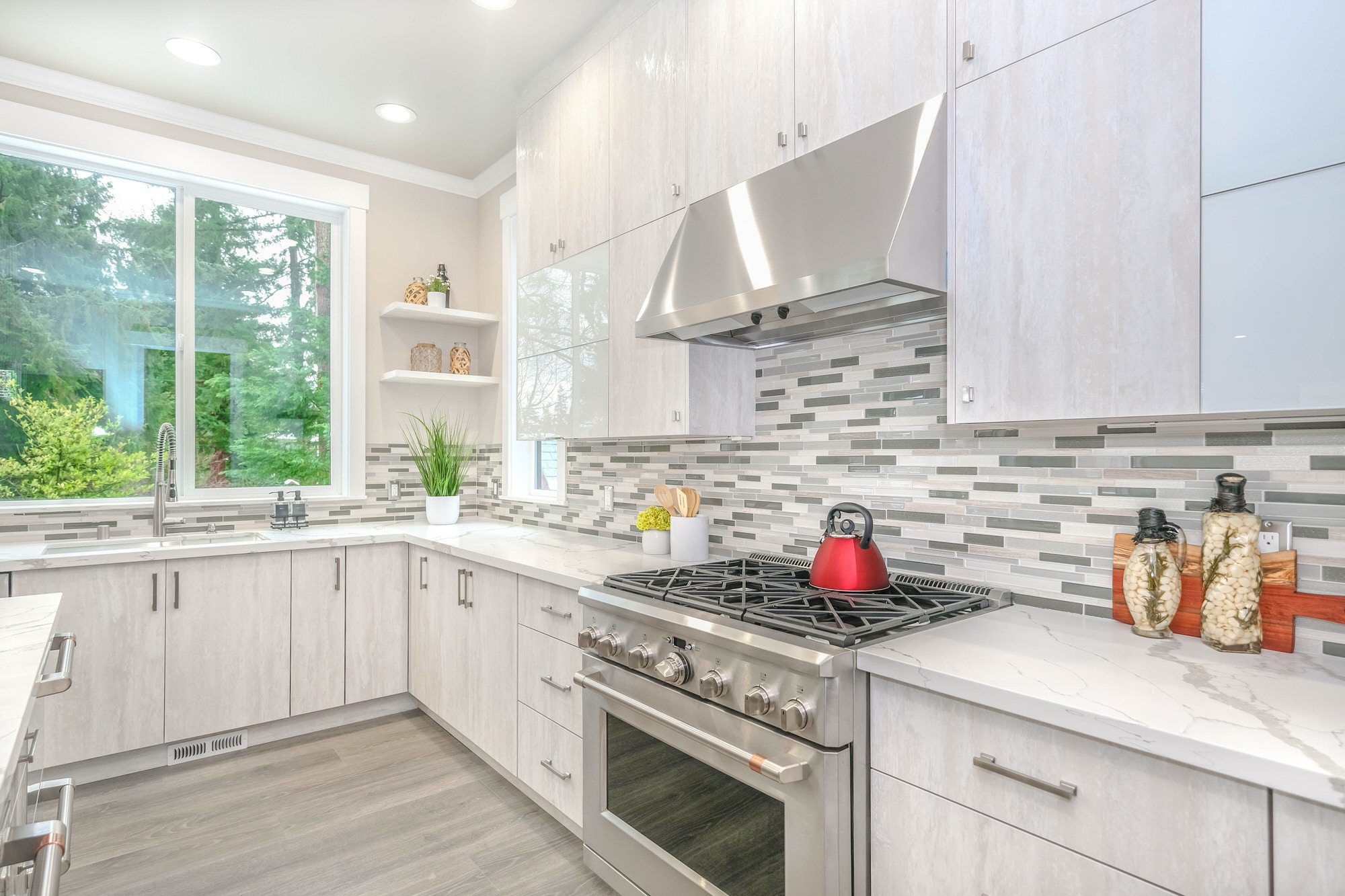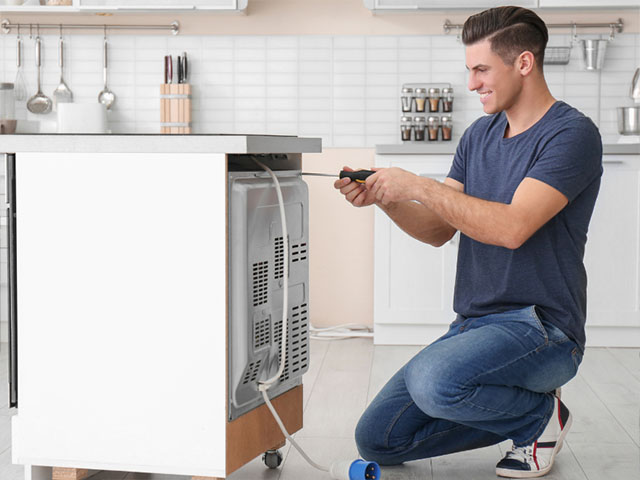Kitchen appliances are essential in every household. From refrigerators and dishwashers to ovens and microwaves, these machines make our daily lives easier and more efficient. However, without proper maintenance, their performance can decline, leading to costly repairs or replacements. In this guide, we’ll outline essential steps to keep your kitchen appliances in optimal condition for years to come.
Table of Contents
1. Regular Cleaning Is Crucial

Refrigerator
- Clean the coils: The refrigerator coils, typically located at the back or bottom, are responsible for releasing heat. Dust and debris can reduce their efficiency, so cleaning them every six months with a vacuum or brush is crucial.
- Wipe down shelves and drawers: Regularly clean interior shelves and drawers to prevent bacteria buildup and unpleasant odors. A mixture of water and baking soda is an excellent, non-toxic cleaning solution.
- Check the door seals: The seals on your refrigerator door keep cold air inside. Inspect them regularly for cracks or gaps, and clean them with warm, soapy water to prevent mold buildup and ensure a tight seal.
Microwave
- Wipe after every use: Food splatters can accumulate inside a microwave, causing smells and reducing efficiency. Wipe the interior with a damp cloth after each use.
- Deep clean once a week: Steam clean your microwave by heating a bowl of water and vinegar for a few minutes. The steam will loosen grime, making it easy to wipe away.
- Inspect and clean the turntable: Make sure the turntable is clean and free from debris, as it can affect the microwave’s performance.
Oven
- Self-cleaning mode: Most ovens come with a self-cleaning function. Use this periodically to burn off baked-on grease and food debris. However, avoid using harsh chemicals that could damage the oven’s surfaces.
- Manual cleaning: If your oven doesn’t have a self-cleaning option, manually scrub the interior with a baking soda paste. Ensure you clean the door and knobs as well.
- Clean the racks: Remove and soak the racks in warm, soapy water before scrubbing them down with a non-abrasive sponge.
Dishwasher
- Remove food particles: After each cycle, check the bottom of the dishwasher for trapped food particles that could clog the system.
- Clean the filter: Regularly remove and clean the dishwasher’s filter to prevent buildup that can lead to unpleasant odors and reduced efficiency.
- Run a cleaning cycle: Every month, run an empty load with a dishwasher cleaner or a cup of vinegar to remove grease and grime from the interior.

2. Follow Manufacturer’s Instructions
Each kitchen appliance comes with a user manual outlining the recommended maintenance steps. Following the manufacturer’s guidelines is key to avoiding damage or voiding the warranty. Make sure to:
- Use the right cleaning products: Some appliances require specific cleaning agents that are safe for their surfaces. Using the wrong product can cause corrosion or other damage.
- Adhere to usage instructions: Overloading your dishwasher or refrigerator, for example, can strain the motor and lead to premature failure.
- Schedule regular servicing: Certain appliances, such as refrigerators and ovens, may require periodic professional servicing to ensure they continue running smoothly.
3. Inspect and Replace Worn Parts
Regular appliance inspections help catch problems before they become major issues. For each appliance, be on the lookout for wear and tear on parts such as:
- Refrigerator seals and gaskets: Replace seals that are cracked or loose to maintain energy efficiency. If you’re unsure about the condition of your seals, consider scheduling professional refrigerator services to ensure your appliance runs optimally.
- Oven door hinges: If the oven door isn’t sealing properly, heat may escape, reducing cooking efficiency. Replace faulty hinges promptly.
- Dishwasher racks and spray arms: Inspect these for rust or cracks. Damaged spray arms can reduce cleaning power, while broken racks can scratch dishes. If you notice any issues, it might be time to schedule a professional dishwasher repair to restore its efficiency.
- Microwave filters: If your microwave has an exhaust filter, clean or replace it as needed to prevent clogging.


4. Avoid Overloading Your Appliances
One of the most common mistakes homeowners make is overloading their kitchen appliances. Overloading not only reduces efficiency but also shortens the appliance’s lifespan. Here’s how to prevent this issue:
- Refrigerator: Keep your fridge at about 75% capacity. Overfilling can block air vents, making it harder for cold air to circulate, which leads to higher energy consumption.
- Dishwasher: Avoid cramming too many dishes into a load. Overloading prevents proper water circulation, leaving dishes dirty and straining the dishwasher’s motor.
- Oven: Don’t crowd the oven with too many dishes, as this can affect airflow and lead to uneven cooking.
- Microwave: Use the recommended weight limits for heating food. Overloading the microwave can cause uneven heating and even damage the motor.
5. Use Appliances Efficiently
Proper use of your kitchen appliances can significantly extend their lifespan. Here are some usage tips:
- Refrigerator temperature settings: Keep the fridge at around 37°F and the freezer at 0°F for optimal efficiency.
- Dishwasher: Use energy-efficient settings and air-dry dishes to reduce strain on the heating element.
- Oven preheating: Avoid preheating the oven unless the recipe requires it, as it can waste energy. Also, use the oven light to check food instead of opening the door, which lets out heat.
- Microwave: Stir food halfway through heating to distribute heat evenly, reducing the microwave’s workload.


6. Address Small Repairs Quickly
Ignoring minor problems can lead to more significant issues down the line. Prompt appliance repairs can prevent breakdowns and extend the life of your appliances:
- Listen for unusual sounds: Grinding, squeaking, or buzzing noises can indicate something is wrong. Call a professional for appliance repair service if you notice any abnormal sounds.
- Fix leaks immediately: Whether it’s a leaky dishwasher or a dripping refrigerator, addressing leaks as soon as possible prevents water damage and reduces the risk of electrical malfunctions.
- Replace faulty parts: Small parts like door handles, buttons, or light bulbs are easy to replace and can keep your appliance in good working order.
7. Energy-Efficient Practices
Energy efficiency isn’t just good for the environment—it’s also a key to maintaining your kitchen appliances. High energy usage puts additional strain on appliances, leading to faster wear and tear. Here’s how to ensure energy-efficient operation:
- Refrigerator: Keep your fridge full, but not overcrowded. Cold items help maintain the temperature, reducing the amount of work the compressor needs to do.
- Dishwasher: Run the dishwasher only when full to maximize efficiency. Use the eco-setting if available.
- Oven: Use convection settings when possible, as they cook food faster and more evenly, saving energy.
- Microwave: Microwaves use less energy than traditional ovens, so whenever possible, heat or cook small meals using the microwave instead.

Conclusion
Maintaining your kitchen appliances is essential for ensuring their longevity and efficient performance. Regular cleaning, following manufacturer instructions, inspecting parts for wear, and using your appliances efficiently can save you time and money in the long run. By addressing small issues promptly and adopting energy-efficient practices, you can extend the lifespan of your appliances and reduce the need for costly repairs. If you ever need professional assistance, don’t hesitate to schedule an appliance repair service with 5 Star Appliance Repair to keep your kitchen running smoothly.
FAQs
How often should I clean my refrigerator coils?
You should clean your refrigerator coils at least every six months to ensure optimal cooling performance. This helps reduce energy consumption and extends the lifespan of the appliance.
What’s the best way to clean my microwave?
Steam clean your microwave by heating a bowl of water and vinegar for a few minutes. The steam loosens grime, making it easy to wipe away with a damp cloth.
Can overloading appliances cause damage?
Yes, overloading appliances like dishwashers and refrigerators can reduce efficiency and strain their motors, leading to premature wear and potential damage. Always follow the recommended capacity for each appliance.
What should I do if my appliance is making strange noises?
Unusual sounds like grinding or buzzing can indicate a problem that requires professional repair. Addressing the issue early can prevent more costly repairs or a complete breakdown.
How can I make my kitchen appliances more energy-efficient?
Use your appliances at optimal capacity, select energy-saving settings, and maintain them regularly. These practices reduce energy consumption and prolong the life of your appliances.

